All Stories
-
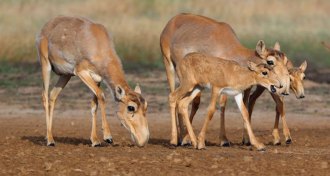 Animals
AnimalsHere’s why so many saiga antelope mysteriously died in 2015
Higher than normal temperatures turned normally benign bacteria lethal, killing hundreds of thousands of the saiga antelopes.
-
 Particle Physics
Particle PhysicsClumps of dark matter could be lurking undetected in our galaxy
Dark matter, assumed to form featureless blobs, might clump together into smaller objects.
-
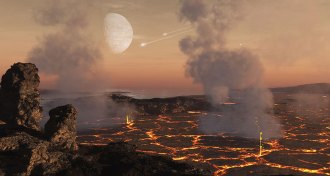 Earth
EarthLife may have been possible in Earth’s earliest, most hellish eon
Heat from asteroid bombardment during Earth’s earliest eon wasn’t too intense for life to exist on the planet, a new study suggests.
-
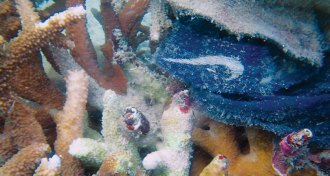 Environment
EnvironmentPlastic pollution increases risk of devastating disease in corals
Researchers estimate about 11 billion pieces of plastic are polluting Asia-Pacific corals, raising the risk of disease at scores of reefs.
By Dan Garisto -
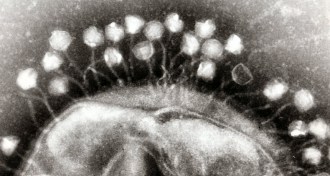 Genetics
GeneticsScientists find 10 new defense systems used by bacteria
Scientists identify 10 groups of genes that appear to govern defense systems used by bacteria against virus attacks.
-
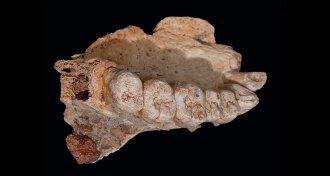 Anthropology
AnthropologyAn ancient jaw pushes humans’ African departure back in time
If an ancient jaw found in an Israeli cave belongs to Homo sapiens, the humans left Africa tens of thousands of years earlier than we thought.
By Bruce Bower -
 Earth
EarthOverlooked air pollution may be fueling more powerful storms
The tiniest particles in air pollution aren’t just a health threat. They also strengthen thunderstorms, new research suggests.
-
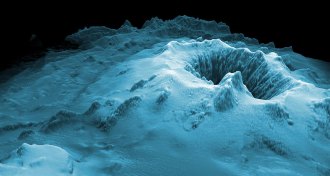 Earth
EarthRobots map largest underwater volcanic eruption in 100 years
High-resolution mapping of a 2012 underwater volcanic eruption just goes to show there’s a lot we don’t know about deep-sea volcanism.
-
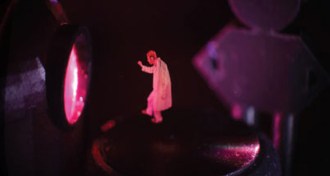 Tech
TechLasers trace a new way to create hovering hologram-like images
Hovering 3-D images pave the way for futuristic displays that could be used for education or entertainment.
-
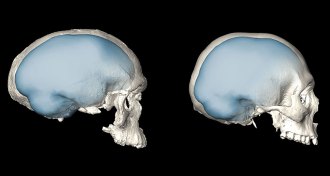 Anthropology
AnthropologyHuman brains rounded into shape over 200,000 years or more
Ancient humans’ brains slowly but surely became round, scientists say.
By Bruce Bower -
 Science & Society
Science & SocietyMemory remains elusive, but the search continues
Acting Editor in Chief Elizabeth Quill explores the history of memory and scientists' search for its physical trace in our brains.
-
 Cosmology
CosmologyReaders wonder about the universe’s expansion and more
Readers had questions about the universe's accelerating expansion, a hidden void in the Great Pyramid of Giza and what happens to human waste in space.